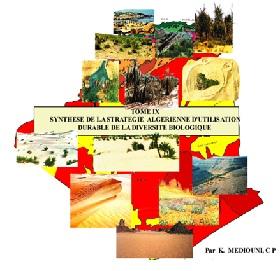Using AI to control energy for indoor agriculture
30 September 2024
Published online 23 June 2011

Algeria might be facing a crisis in biodiversity as 51–66% of its plants and animals are endangered by human activities and changes in natural habitat, claims a report released 19 June by the Algerian Ministry of Planning and Environment.
The report Algeria's Strategy for Sustained Use of Biodiversity documents 16,435 different species, but suggests this represents around half of all flora and fauna in Algeria. It blames a booming human population and unsustainable development programmes for the biodiversity crisis in Algeria.
"Illegal fishing and overgrazing are the largest threats posed to biodiversity in Algeria," said Wael Al-Zeraey, an environmentalist at Djillali Liabes University of Sidi Bel Abbes, Algeria. Forest fires are contributing to desertification. Even though they were becoming less frequent, forest fires rose again in 2010, destroying 30,000 hectares. Pumping of untreated industrial waste into the sea threatens coastal life, he adds.
Algeria is home to 107 different types of mammals, but 47 of these are endangered, such as the Barbary stag and the Barbary leopard. It is also home to more than 1,000 endangered plants, 100 of which are endemic to North Africa.
"The different habitats, from the coastal regions to the forests to the deserts, are key to Algeria's biodiversity," said Nadia Chenouf, director of biodiversity at the Algerian Ministry of Planning and Environment. "Each of them is unique in its own way and the dangers it faces."
Algeria has signed several international treaties for protection of biodiversity, including the Convention on International Trade in Endangered Species of Wild Fauna and Flora in 1982. "These measures did not help to protect a number of plants and animals from going extinct from several places in the country," says Leila Bensmaine, a climatologist at the University of Sciences and Technology-Houari Boumediene in Bab-Ezzouar, Algeria.
Algeria has ten nature reserves, covering an area of 365,165 hectares. The report stresses the importance of involving civil society in planning and managing these national assets.
Ramdani Messaoud, a biologist at the University of Constantine, Algeria, says reserves play an important role in protecting endangered species. "But the Algerian civil war in the 1990's shifted focus away from protecting the environment and biodiversity," he adds.
The report recommends the promotion of biodiversity research in Algerian universities that helps protect the environment. The ministry of education should strengthen the biological sciences and develop biosystematics, biotechnology, genetic engineering and resource management.
Bensmaine thinks the Algerian government is making moves to promote science by investing in scientific research into preservation of animals and plants in their natural environments. Messaoud contends that the government has not done enough: "[It] has focused on legislations and laws to protect the environment, but has not worked on actually applying them on the ground through research and sustainable development.
"That is why we have this biodiversity crisis outlined in the report."
doi:10.1038/nmiddleeast.2011.74
Stay connected: